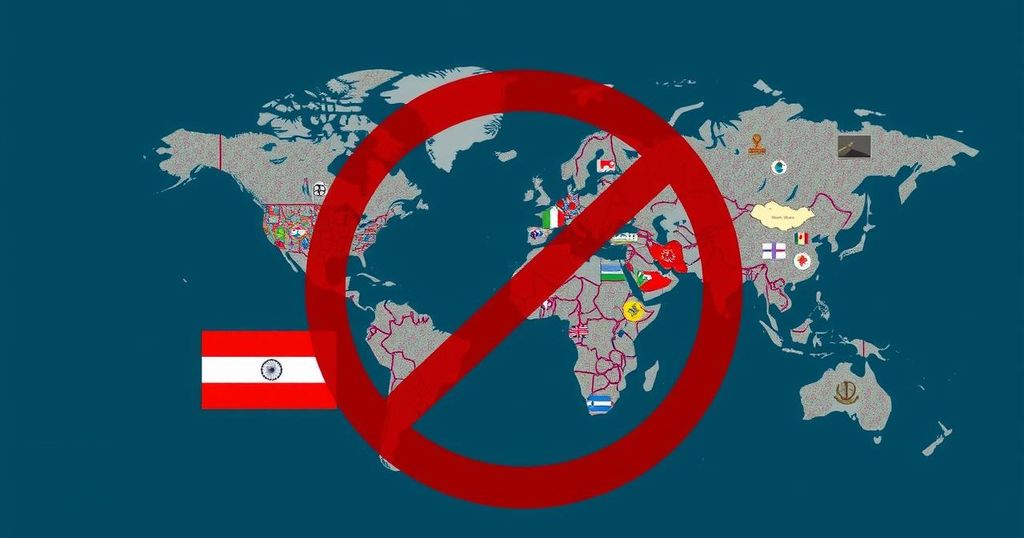The U.S. will not renew a humanitarian parole program for Venezuelans, Haitians, Cubans, and Nicaraguans, leading many migrants to face deportation after two years without alternative legal options. The program, initiated in response to crises in these countries, is set to expire, raising concerns about the future of those affected amid ongoing political turmoil and humanitarian needs in their home nations.
The U.S. government has decided against renewing its humanitarian parole program that has facilitated the entry of hundreds of thousands of Venezuelans, Haitians, Cubans, and Nicaraguans over the past two years. This decision means that participants in this two-year program, which has provided essential legal avenues for migration amidst a backdrop of political and humanitarian crises, will have to leave the United States if they do not have alternative means to remain. The Department of Homeland Security has confirmed this decision, which comes at a time when the Biden administration has sought to impose stricter immigration regulations. Initially established for Venezuelans in October 2022, the program subsequently included migrants from Cuba, Haiti, and Nicaragua, permitting them to enter U.S. airports following health and background checks, provided they have financial sponsors. The expiration of the first Venezuelan paroles is imminent, while those for the other nations are set to end in January 2025. Concerns have been raised about the ramifications of this decision, particularly for those who might qualify for Temporary Protected Status (TPS) or other legal immigration avenues. However, it remains uncertain how many of the approximately 500,000 individuals who have entered under the parole program will be able to continue residing in the U.S. Migrants not eligible for TPS, asylum, or other immigration benefits will face deportation proceedings once their parole expires. Current geopolitical conditions in the respective countries, particularly Venezuela, where Nicolás Maduro’s regime continues to suppress opposition, complicate the situation further. Supporters of the program and advocates for immigrant rights argue that discontinuing the humanitarian parole scheme is ill-timed given the dire circumstances in these countries. The decision to halt the program has also intensified scrutiny of the Biden administration’s immigration policies, particularly as it navigates a contentious election cycle with immigration issues at the forefront.
The cessation of the humanitarian parole program represents a significant shift in U.S. immigration policy, especially in relation to countries experiencing severe political instability and humanitarian crises. This program had been crucial for many migrants from Venezuela, Haiti, Cuba, and Nicaragua, providing a temporary legal pathway in contrast to increasing restrictions on illegal immigration across the U.S.-Mexico border. The initial success of the program prompted the Biden administration to expand it, yet the decision not to renew it raises concerns about the future of the migrants who participated, especially those from countries with ongoing challenges. Advocacy for extending protections like TPS exists, yet the program’s discontinuation may exacerbate the plight of many immigrants.
In summary, the U.S. government’s decision not to renew the humanitarian parole program for Venezuelans, Haitians, Cubans, and Nicaraguans culminates in uncertainty for many migrants who face the prospect of deportation after leveraging this pathway for migration amidst crises in their home countries. The discontinuation of this program raises significant apprehension regarding the fate of approximately 500,000 individuals who may not secure alternate means for legal residency in the U.S. The political context and the ongoing humanitarian issues in their home countries necessitate a compassionate approach to their future in the United States.
Original Source: www.miamiherald.com






